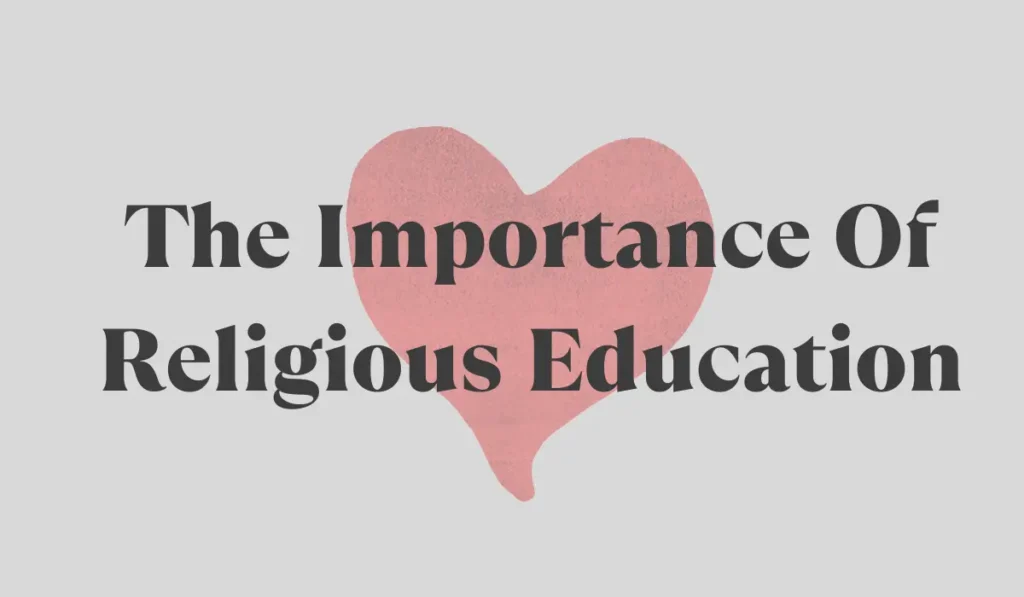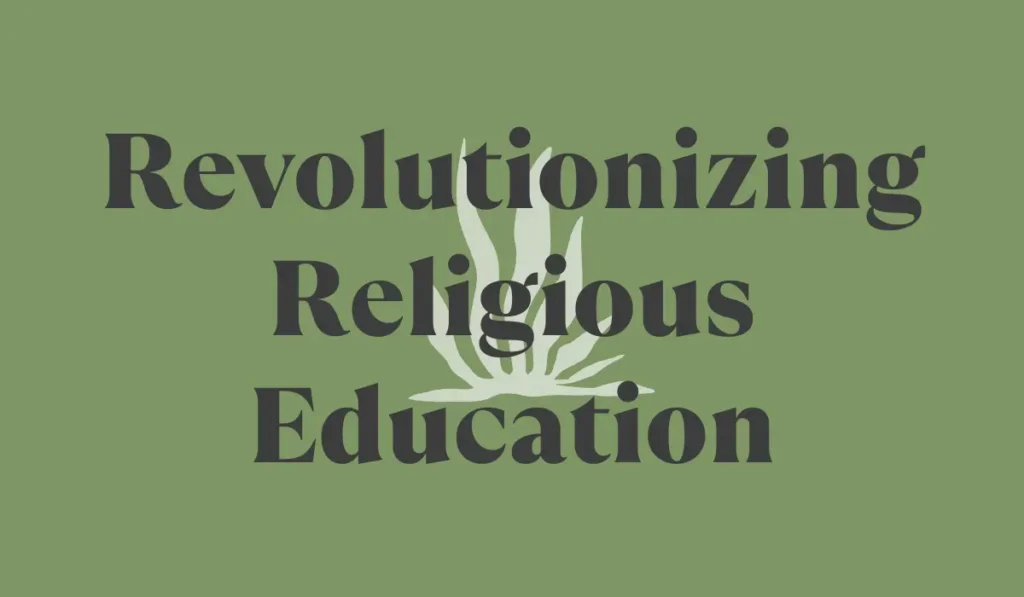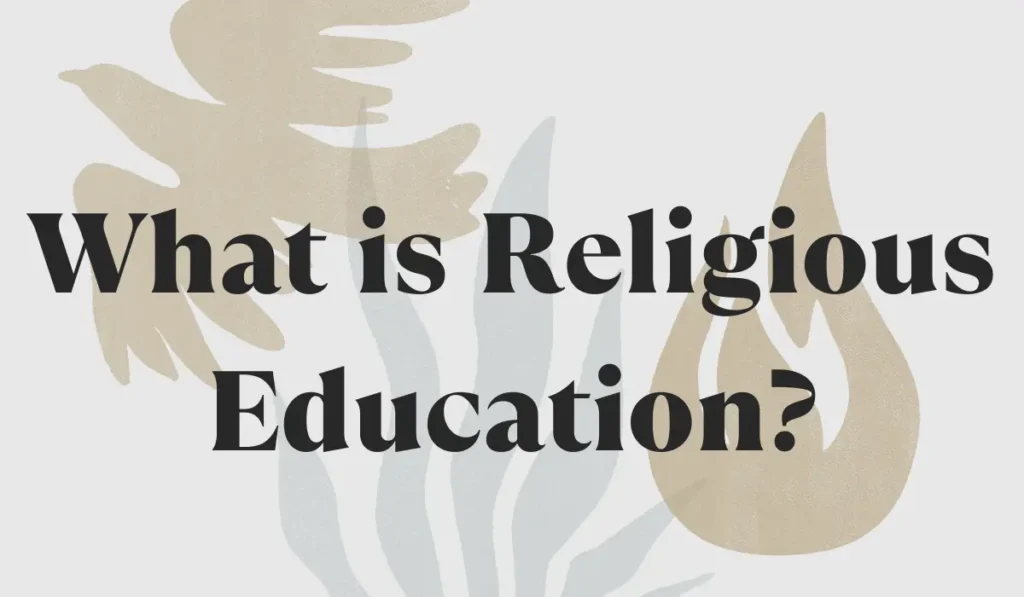Religious education is the study of the beliefs, practices, and teachings of religions. It is a subject that explores the role of religion and spirituality in society, as well as providing students with an understanding of the different religious traditions around the world.
It is a subject that not only provides insight into the beliefs and practices of different religions but also helps students develop a deeper understanding of themselves and their own beliefs.
In today’s pluralistic and diverse society, religious education is essential in promoting mutual respect and peaceful coexistence between different faiths and cultures.
The Importance Of Religious Education

Religious education is important for both spiritual fulfillment and understanding. It provides a framework for individuals to connect with their faith, culture, and beliefs.
This education instills moral values and promotes tolerance, playing a vital role in shaping one’s identity.
By exercising the various cultural practices within their faith, people can gain a breadth of appreciation for diversity.
While it may be argued that religious education can be divisive, the reality is that it helps create a sense of community and belonging. This can empower individuals to act in unity against inequality or injustice.
Furthermore, in an increasingly complex and interconnected world, religious education can help build bridges of understanding between different cultures and religions.
The Challenges Of Traditional Religious Education
Traditional religious education poses various challenges for students to fully engage and benefit from the material. Students may have difficulty relating to the teachings, especially if their cultural backgrounds don’t align with the curriculum.
Limited exposure to different perspectives and beliefs may hinder students’ critical thinking and understanding of other religions.
As a result, students may struggle to apply the teachings to their daily lives and real-world issues.
Traditional religious education can benefit from incorporating diverse perspectives and interactive learning methods to foster inclusivity and understanding among students of all backgrounds.
Revolutionizing Religious Education

Religious education has come a long way thanks to technology and innovation. Students can now enjoy interactive and personalized learning experiences.
The use of multimedia and stimulating materials is making learning more exciting and engaging. Teachers can now create unique lesson plans that cater to different learning styles.
With technology, learning religious texts has become more accessible and interactive for students. From online courses to interactive learning panels, technology is transforming learning in a significant way.
These changes are making students more engaged and excited about learning. The future of religious education looks brighter than ever before with the help of technology and innovation.
The Future Of Religious Education
Religious education is rapidly evolving amidst the technological revolution. The future of religious education will explore the impact of technological advances on traditional teachings.
As society progresses, so should religious teachings. Continuous improvement and adaptation are crucial in ensuring that religious education curriculums remain relevant and engaging.
As education becomes more accessible through technology, the future of religious education relies on its ability to adopt these advancements.
Incorporating modern teaching methods can help students better understand historical teachings. By emphasizing the value of technology in religious education, we can create a generation of knowledgeable and open-minded individuals.
The future of religious education is bright, as long as we keep an open mind and embrace change.
Frequently Asked Questions
Is Religious Education Necessary For Children?
Religious education is important as it helps children develop moral and ethical values, learn about different cultures and beliefs, and form their spiritual identity.
What Are The Benefits Of Religious Education?
Religious education helps individuals understand their faith and beliefs better, enhances their spiritual and moral development, and promotes social and cultural awareness and acceptance.
Can Religious Education Be Taught At Home?
Yes, parents can teach religious education at home by engaging children in faith-based activities, reading religious texts, discussing beliefs and values, or enrolling them in online religious courses.
Conclusion
After delving into the importance of religious education, it is quite evident that such learning is an integral part of any society. The benefits of imparting religious education extend beyond individual spiritual development to form a cornerstone of societal harmony and cohesion. It instills moral values and ethics, respect for human diversity, and fosters a deep appreciation for culture and traditions. Religious education helps to develop critical thinking skills as students learn to engage with others and seek knowledge, and it strengthens one’s relationship with their faith.


